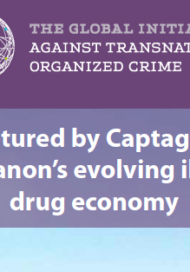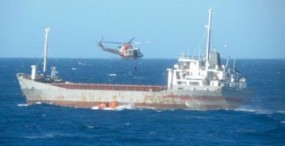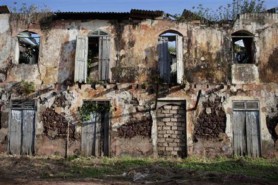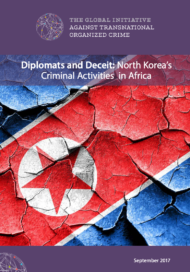Posted on 05 Jun 2017
The latest report by the Global Initiative against Transnational Organized Crime “Captured by Captagon? Lebanon’s evolving illicit drug economy” highlights a worrying trend of rising Captagon production and trafficking through Lebanon.
The author interviewed numerous actors in Lebanon and is about to publish a report exploring the evolution of Lebanon’s drug trade, and in particular the production and trafficking of Captagon.
Captagon – in the past years demonised as a war drug for ISIS zombie warriors by several news outlets – is an amphetamine and popular party pill widely used throughout the Gulf countries. Evidence presented in an earlier Global Initiative report, “The Nexus of Drug Trafficking and Conflict in Syria and the Wider Region” suggests that the trade in Captagon is burgeoning, with much of the production in Syria and its neighbouring countries.
In recent years Lebanon has seen a stark rise in the number of Captagon tablets seized by authorities. In 2012 Lebanon’s drug enforcement agency seized some 464,000 pills. Just two years later seizures rose to 35 million tablets, a staggering increase. What is discovered may be only a fraction of the Captagon that is produced and trafficked, says Lebanon’s chief drug enforcement official. The number of Captagon tablets seized by Lebanese authorities between 2013 and the end of August 2016 (over 70 million) represents a market potentially worth USD 14 billion during the same period, according to estimates by Lebanese authorities, who say seizures represent around 10 percent of production.
Falling seizure rates, rather than suggesting a reduction in trafficking, are indicative of a low of the threat by domestic security and the international community. The corrosive impact of corruption is also likely to be a factor, given the political-economy of the drug trade that has been in place since the end of Lebanon’s civil war.
Money laundering is an essential component of all drug economies and the key challenge for law enforcement is to prove a link a link between suspicious funds and a specific predicate offence. The efforts of investigators in this field are frustrated by a combination of the creativity of criminals, slow or inadequate international cooperation, and limited domestic legislation in this area
The report recommends an increased focus on the Lebanon’s drug economy. Research for this report indicates the widespread impact of illicit financial flows on the economy. The prominence that the Captagon trade has assumed (a global illicit industry worth an estimated US $ 1 billion a year), along with the production of other drugs, is worsening an already serious position.
As Syria’s war grinds on, and the country continues to grapple with constitutional challenges, the focus of domestic and international attention has consistently been consistently on other priorities:
- Lebanon’s military is focussed on more significant cross-border threats and terrorist violence;
Across the Bekaa Valley marijuana yields are not being eradicated. The police need the repower of the Lebanese Army to uproot crops, but since the start of Syria’s civil war in 2011, the army has been more concerned with shielding Lebanon from the war and pursuing terrorist and extremist elements than drug enforcement.
- The police force is understaffed, underfunded and under equipped.
In total the drug unit has four offices (The headquarters in Beirut, South district, North district and an outpost in Bekaa Valley) and 150 personnel. The drugs unit needs at least twice that number only for the Beirut Area and other 150 for logistics and 150 for operations). Also the Internal Security Force (ISF) is understaffed: a 2009 paper found that manpower figures for the ISF was some 6,000 less the personnel numbers prescribed by law (35,000-40,000).
- Legal and institutional frameworks are inadequate and international support in the area of organised crime and drug trafficking is small.
The legal framework governing drug enforcement has never been fully implemented. In 1998, a new law combating narcotics and addressing drug use was drafted and ratified by the Parliament. The Central Directorate for Drug Control (CDDC), within the Ministry of Interior, exists only on paper and its responsibilities have been folded into those of the ISF’s drug unit. Furthermore, there is no anti-drug officers at any of the nation’s entry and exit points. The director general of the ISF is apparently drafting legislation to rectify this deficiency but the rules have not yet been ratified.
Lebanon needs more of everything (funding, manpower, strategy, rehabilitation facilities) if it ever wants to genuinely address its growing drug problem and the serious impact it has on Lebanon’s rule of law and democratic governance.





